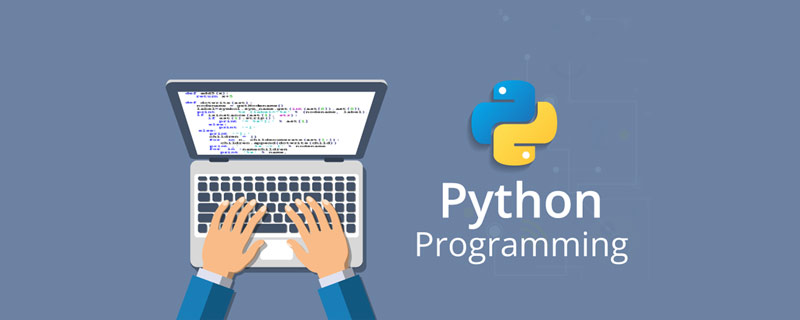Home >Backend Development >Python Tutorial >What are the must-memorize contents for Python?
Python must memorize content: 1. Variables, master the naming method of variables; 2. Data types, master the mutual conversion of int, float, bool and other types; 3. Master arrays Type, defined in [[ ]], with commas separating the elements.

Python must memorize content:
1. Variables
1. Variable
•refers to a variable amount during program execution;
•defining a variable will be accompanied by three characteristics, namely memory ID, data type and variable value.
•Before running other languages, you must manually release the memory space of the program. However, the python interpreter has its own memory recycling mechanism. Once the python program finishes running, the memory space will be automatically released.
age=10
print(id(age),type(age),age)
2. Constant
•Refers to the process of program execution , immutable quantity;
•Generally, capital letters are used to define constants.
AGE=10
print(AGE)
3. Naming method of variables
•Camel case
AgeOfOldboy=72
•Underscore
age_of_oldboy=72
2. Interacting with the program
In ancient times, when we went to the bank to withdraw money, we needed A bank clerk waited for us to enter our account and password to him, and then he went to verify it. After success, we entered and told him the withdrawal amount.
Proud modern people will provide customers with an ATM machine (that is, a computer), allowing the ATM machine to interact with the user, thus replacing manpower. However, the machine is dead, and we must write programs for it to run. This requires our programming language to have a mechanism that can interact with the user and receive user input data.
1, python3
•Python3 supports UTF-8 Chinese encoding by default. python2 needs to add # -*- coding:utf-8 -*- at the head of the code.
•Input in python3, no matter what type of value is entered, it will be saved as str (string) type
name=input('please enter the username: ')
print(id(name),type(name),name)
2, python2
•raw_input in python2 is the same as input in python3;
name=raw_input( 'please enter the username: ')
print(id(name),type(name),name)
•Input in python2, you must enter a value. What type this value is will What type is saved.
name=input('please enter the username: ')
print(id(name),type(name),name)
3. Data Type
1, int integer type
•Generally used to define age, ID number, QQ number, level, etc.
age=18
id=130530198805240011
qq=379048558
level=99
2, float floating point type
•Generally used to define height, weight, Salary, etc.
height=1.81
height=float(1.81)
3, str string type
•Generally used to define a person’s name, Gender, status, etc.;
• Generally, strings are placed in single quotes, double quotes, or triple quotes.
name='egon'
sex='female'
age=18
•String splicing uses " "
name='egon'
sex='female'
age=18
print(name sex str(age))
Note: here The age variable value is 18, which is an int type and cannot be concatenated with strings. You need to use str(age) to convert it to a string type.
•Use "*" for string splicing
name='egon'
print(name*10)
4, bool Boolean value type
•There are only two values: True and False;
•Mostly used for judgment.
age=73
AGE=18
print(age < AGE)
print(age > AGE)
5. Conversion between various types
•Integer type——>Floating point type
a=18
print(float(a))
•Floating point type——>Integer type
a=1.81
print(int(a))
•Floating point type——>String type
a=1.81
print(str(a))
•Integer type——>String type
a=18
print(str(a))
4. Array type
1. List[]
•List in python, defined in [], use "comma" to separate the elements;
info=['egon','alex',18]
print(info[2])
•Elements can be any data type or array type;
•Character elements need to be enclosed in quotation marks, integers, floating point types, lists, etc. do not need quotation marks.
info=[13,18.1,'alex',['egon','tony']]
print(info[3][0])
2 , Dictionary {}
•Dictionary in Python, also called associative array, is defined in {}, and the elements inside are expressed in the project name: project content format, and the elements are separated by "comma";
info={'name':'egon','sex':'male',3:18}
print(info[3])
•Project content can It is any data type or array type;
•The string type in the project content needs to be enclosed in quotes, while integers, floating point types, lists, etc. do not need quotes.
info={'Name':'Aigen','Gender':'Male','Muscle':['Yes','No']}
print(info[ 'Muscle'][1])
info={'Name':'Aigen','Gender':'Male','Muscle':123}
print(info['Muscle'])
info={'Name':'Aigen','Gender':'Male','Muscle':18.1}
print(info['Muscle'])
info={'Name':'Aigen','Gender':'Male','Muscle':'None'}
print(info['Muscle' ][1])
5. Formatted output
•my name is xxx, my age is xxx
•Need to use placeholders %s
name=input('user_name>>: ')
age=input('user_age>>: ')
print('my name is %s, my age is %s' %(name,age))
6. Operator
1. Arithmetic operator
• - * /
print(5 5) #5 plus 5 equals 10
print(5-5) #5 minus 5 equals 0
print(5*5) #5 times 5 is equal to 25
print(5/2) #5 divided by 2 is equal to 2.5
•Find the integer part of the quotient // Find the remainder part of the quotient % power**
print(5//2) #The quotient of 5 divided by 2 is equal to 2 with a remainder of 1, only take the quotient 2
print(5%2) #The quotient of 5 divided by 2 is equal to 2 with a remainder of 1, only take the remainder 1
print(3**2) #2 raised to the power of 3 is 3 times 3 equal to 9
2, comparison operator
•> < > = <= == !=
print(30 > 20)
print(30 < 20)
print(30 >= 30)
print(30 <= 30)
print(30 == 30)
print(30 != 40)
3. Logical operator
•Logical AND and Logical OR or Logical NOT Bitwise AND & Bitwise OR|
•Logical AND and, all conditions must be met for the result to be True;
• Logical or or, as long as one condition is met, the result will be True;
• Logical not, the result will be inverted.
name='egon'
age=18
print(age > 15 and name == 'egon')
print(age > ; 15 or name != 'egon')
print(not age > 15)
For a large number of free learning recommendations, please visit python tutorial(video)
The above is the detailed content of What are the must-memorize contents for Python?. For more information, please follow other related articles on the PHP Chinese website!